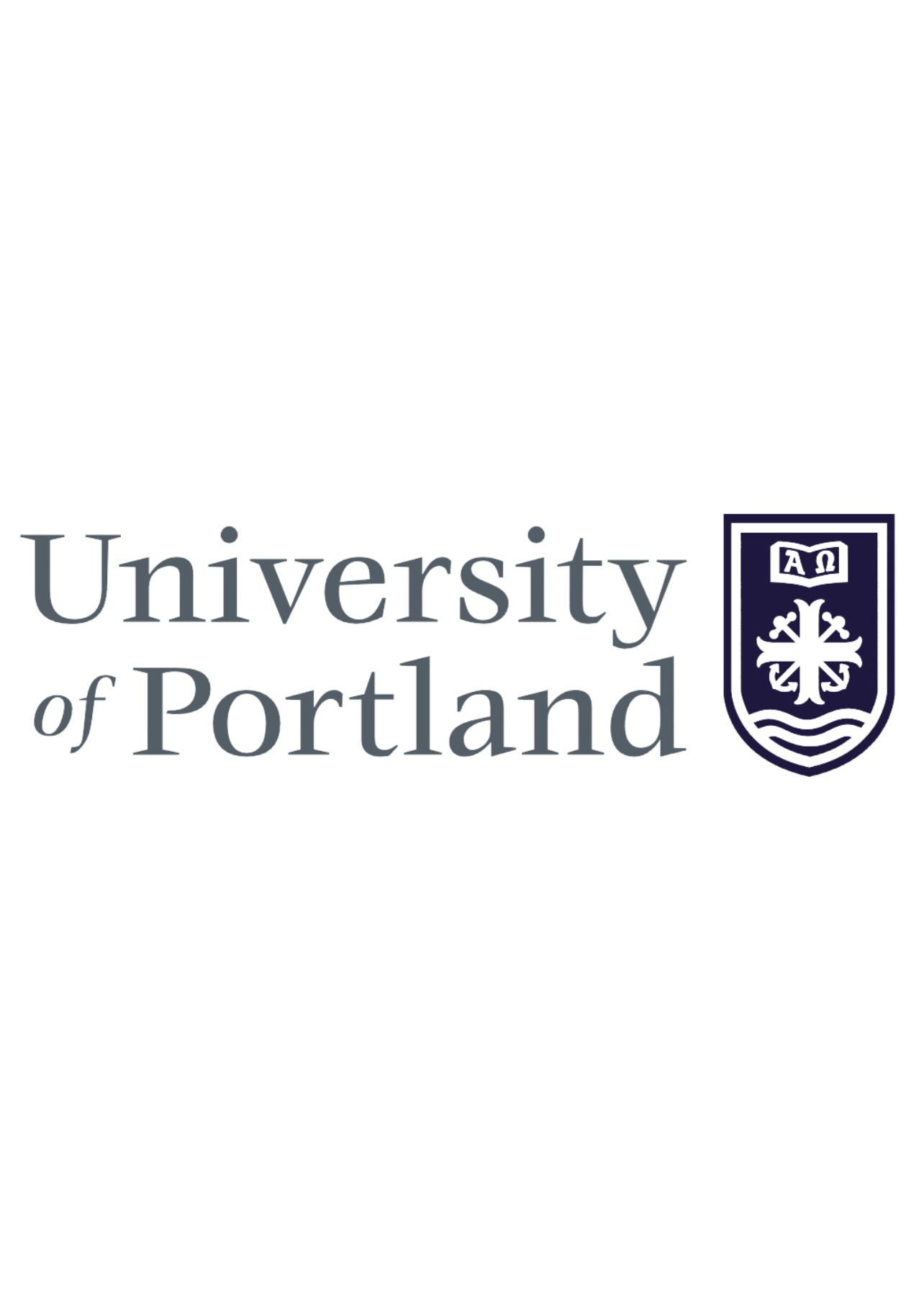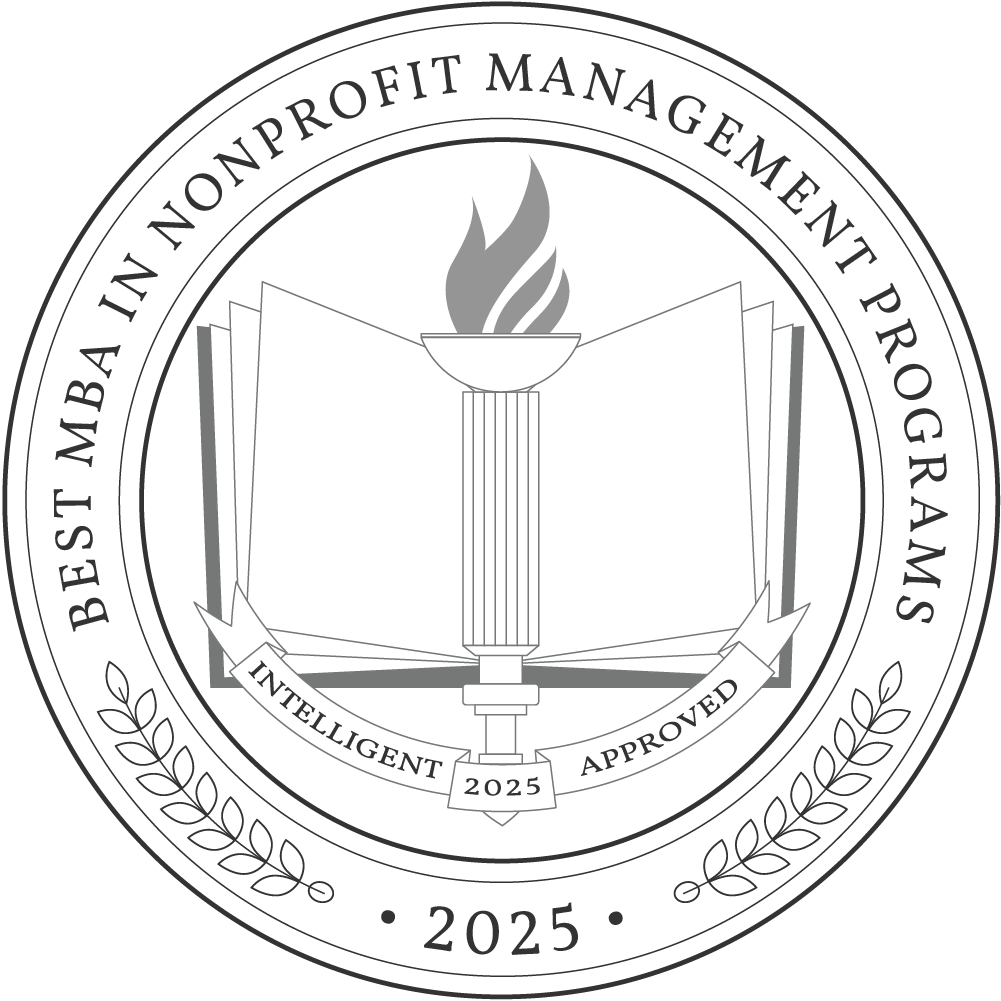By pursuing an MBA in nonprofit management, you’ll be entering a specialized field that addresses the most challenging issues of our society, designed for individuals committed to driving positive change through mission-focused organizations. This degree prepares graduates for several rewarding careers, such as social and community service managers with a median salary of $74,240 or fundraising managers with salaries that regularly reach six figures.
For those enrolled full-time, the program typically lasts two years, with the average cost of graduate tuition being $19,749 for the 2020-2021 academic year. Beginning this educational venture leads to opportunities where contributing to societal improvements is a central career goal.
Why Trust Us
The Intelligent.com Higher Education Team is dedicated to providing students with independent, equitable school and program rankings and well-researched resources. Our expert-driven articles cover topics related to online colleges and programs, paying for school, and career outlooks. We use data from the U.S. Department of Education’s College Scorecard, the National Center for Education Statistics, and other reputable educational and professional organizations. Our academic advisory team reviews content and verifies accuracy throughout the year for the most current information. Partnerships do not influence rankings or editorial decisions.
- Analyzed over 2,000 national, accredited, and nonprofit colleges and universities
- 800+ rankings pages are reviewed and updated yearly
- Content is informed by reputable sources, surveys, and interviews with academic advisors and other experts
- Over 100 data points are reviewed for accuracy and quality throughout the year, including sources
How we rank schools
Our list features the best MBA in Nonprofit Management degree programs at top colleges nationwide. Each school featured is a nonprofit, accredited institution — either public or private — with a high standard of academic quality for post-secondary institutions.
We evaluated each school’s program on tuition costs, admission, retention and graduation rates, faculty, reputation, and the student resources provided for online students. We collected data from trusted sources like the National Center for Education Statistics, individual school and program websites, school admissions counselors, and other data sources. Then, we calculated the Intelligent Score on a scale of 0 to 100 based on the following criterion:
Academic Quality:
- Admission rate versus enrollment rate
- Retention rate of students who return after year one
- Accreditation status (regional and programmatic)
- Nonprofit status, both private and public institutions
Graduation Rate
- Overall graduation rate
- Total number of currently enrolled students, including diversity metrics
- Student-to-faculty ratio
Cost and ROI
- In-state and out-of-state per-credit tuition rates and fees
- Required credits to graduate
- Earning potential after graduation
- Availability of federal student loans, scholarships, and other financial aid options
Student Resources
- Available student services for online-only and hybrid programs
- On-campus amenities like tutoring centers and the number of libraries
Read more about our ranking methodology.
Best 5 Accredited MBA in Nonprofit Management Programs
FiltersInstitution Type
Status
- Intelligent Score
- Alphabetically By University Name
- Acceptance Rate
- Enrollment
- In-state Graduate Tuition
- Out-of-state Graduate Tuition
- In-state Undergraduate Tuition
- Out-of-state Undergraduate Tuition

Brandeis University
Intelligent Score: 99.87In-state: $55,340
Out-of-state: $55,340
In-state: $51,940
Out-of-state: $51,940
SAT: 1320-1510
ACT: 31-33
$1,108
On-Campus
Association to Advance Collegiate Schools of Business
52

Louisiana State University
Intelligent Score: 96.04In-state: $8,038
Out-of-state: $8,038
In-state: $9,132
Out-of-state: $9,132
SAT: 1090-1300
ACT: 23-28
Resident: $767
Non-Resident: $1,467
On-Campus
Association to Advance Collegiate Schools of Business
48

University of Portland
Intelligent Score: 95.35In-state: $49,424
Out-of-state: $49,424
In-state: $23,868
Out-of-state: $23,868
SAT: 1130-1320
ACT: 23-29
$750
On-Campus
Association to Advance Collegiate Schools of Business
36

UMass Boston
Intelligent Score: 94.58In-state: $15,791
Out-of-state: $35,779
In-state: $14,014
Out-of-state: $14,014
SAT: 1200-1390
ACT: 27-32
In-State: $832
Out-of-State: $1,600
On-Campus, Online
Association to Advance Collegiate Schools of Business
36-42

University of Maine
Intelligent Score: 91.52In-state: $9,240
Out-of-state: $30,030
In-state: $8,298
Out-of-state: $8,298
SAT: N/A
ACT: N/A
$679
On-Campus
Association to Advance Collegiate Schools of Business
33
How to Choose an MBA in Nonprofit Management Program
Choose your area of study
For many students, the search for the right MBA program in nonprofit management begins with selecting a potential specialization. Starting your research this way has two purposes: it helps align your education with your career goals and improves your chances of finding programs that will help you achieve them.
To illustrate, a fundraising concentration is ideal for those looking to excel in donor relations and capital campaigns, while social entrepreneurship attracts students keen on innovative solutions to social issues. A policy and advocacy concentration is suited for those aiming to influence public policy and champion causes at the legislative level.
Research schools and programs
Now that you have a specialization in mind, you can officially begin researching schools and programs. This may feel overwhelming, but you can simplify this process by using the following questions to guide your research:
- What is the program’s curriculum, and how does it align with my specialization?
- Who are the faculty, and what is their experience level in my area of interest?
- What networking and internship opportunities does the program offer?
- Does a recognized accrediting body accredit the program?
Most programs make this information readily accessible on their official website, where you can also review program descriptions and faculty backgrounds. Reaching out to an admissions counselor and attending information sessions can provide deeper insights and personalized answers.
Prepare for tests and applications
With your shortlist of intended schools in hand, it’s time to begin preparing for tests and applications. Start by gathering essential materials early, including transcripts and letters of recommendation, to avoid any last-minute stress. You’ll also want to allocate significant time to write your personal statement, reflecting on your goals and suitability for the program.
Test prep courses are often beneficial for the GMAT or GRE, as they can help boost your scores. Be sure to check each institution’s waiver policies, as some may not require these tests under certain conditions.
Select your program
When acceptance letters arrive, you may have a significant decision to make. Fortunately, you can simplify this process by revisiting your initial research criteria — focusing on curriculum relevance, faculty you’re excited to learn from, and the program’s networking opportunities.
Additionally, evaluate each program’s total cost of attendance and research financial aid opportunities to ensure it aligns with your financial planning. This careful consideration will help you choose the program that best fits your professional goals and economic means.
Determine how you’ll pay for your degree
A common misconception is that earning an MBA is impossible without accruing significant debt, but this is untrue. You can achieve your degree without accumulating debt by strategically leveraging financial aid options.
Prioritize scholarships and grants, which are awarded based on merit or need and do not need to be repaid. Though grants are more common for undergraduates, some programs may offer them to graduate students.
Consider assistantships, which provide tuition waivers or stipends in exchange for research or teaching responsibilities. Additionally, ask your employer about tuition reimbursement programs, where some or all of your tuition costs might be covered in return for a commitment to work for your employer post-graduation.
What Can You Expect From an MBA in Nonprofit Management Program?
While a general MBA may seem sufficient for any organizational management, it often falls short in addressing nonprofits’ specific needs, prioritizing fulfilling a mission over profit generation. These programs delve into strategic planning, fundraising, volunteer management, and fiscal policies unique to nonprofits, ensuring you’re well-prepared to lead with impact.
Typically completed in two years, curriculums often include internships that provide real-world experience or capstone courses that allow students to apply their knowledge to solve practical problems. This comprehensive approach ensures that graduates are versed in both the theory and the practice of nonprofit management, making them highly valuable in their future careers.
Potential courses you’ll take in an MBA in nonprofit management program
- Fundraising and Resource Development: In this course, students explore fundraising strategies and resource development techniques critical for nonprofit sustainability. These courses typically focus on donor relations, grant writing, crowdfunding, and building a diversified funding base to support nonprofit missions effectively.
- Nonprofit Financial Management: A core requirement in most programs, these courses examine budgeting specifics, accounting, and financial reporting in the nonprofit context. Students gain expertise in navigating the unique financial challenges of nonprofits — including fundraising, grant management, and financial transparency.
- Marketing for Nonprofits: Another common core requirement, this course teaches students how to leverage marketing and communication strategies to promote their organization’s mission, engage the community, and attract funding. The curriculum covers branding, social media, public relations, and audience engagement specific to nonprofit management.
- Nonprofit Leadership and Governance: This course examines the roles and responsibilities of nonprofit boards and executive leadership. Students learn about ethical leadership, board development, governance models, and building effective board-staff relationships to improve organizational performance.
MBA in Nonprofit Management Degree Frequently Asked Questions
How do I apply to an MBA in nonprofit management degree program?
To apply for these degrees, you’ll need to navigate an admissions process to assess your readiness and fit for the program. Requirements can vary by institution, but many programs share the same criteria:
- A bachelor’s degree from an accredited institution
- Relevant work experience in the nonprofit sector
- Letters of recommendation that attest to the applicant’s leadership and management potential
- A personal statement outlining career goals and reasons for pursuing this specific degree
- GMAT or GRE scores, although some programs offer waivers under certain conditions
It’s important to consult with an admissions counselor before applying. By taking this additional step, you can ensure that you understand all program and application specifics, maximizing your chances of admission.
How much does an MBA in nonprofit management degree cost?
The cost of an MBA in nonprofit management can vary widely, but the average graduate tuition for the 2020-2021 academic year was $19,749. Beyond tuition, you’ll want to consider additional expenses such as textbooks, course materials, living expenses, and fees associated with internships or capstone projects. These costs can add up over time, but it’s important to remember that many programs may have financial aid, scholarships, and grants to help offset expenses.
How long does it take to earn an MBA in nonprofit management degree?
Earning this degree takes two years for full-time students and up to four years for part-time enrollment. Full-time study allows for immersive learning and quicker completion, which is ideal for those able to dedicate significant time to their studies. However, those who enroll part-time can better balance a full-time job with their education, but it can extend the time to degree completion.
Considering the total number of required credits is essential, as this can vary between programs. Generally, more credits mean a longer duration to complete the degree.

